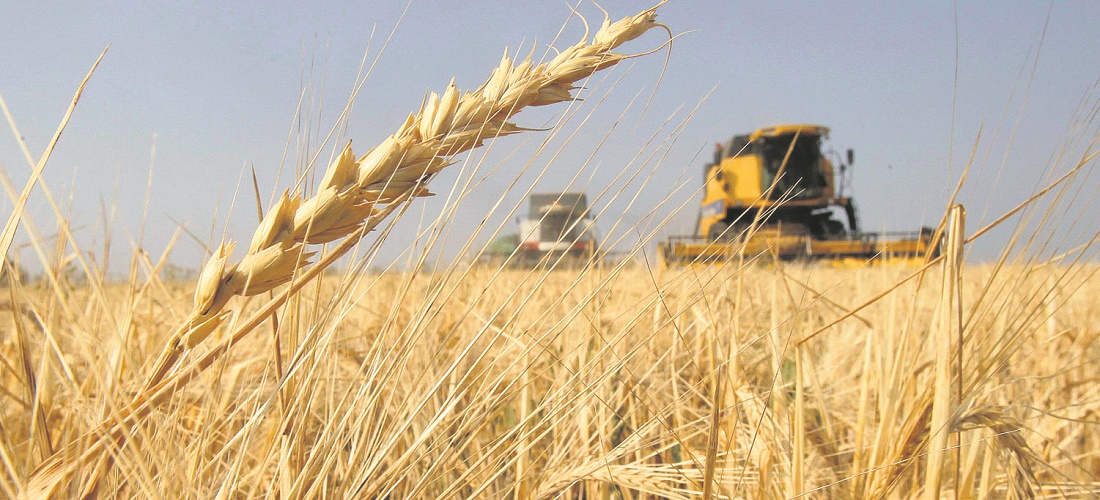
End of Black Sea Deal raises questions among grain traders
Jul, 18, 2023 Posted by Gabriel MalheirosWeek 202330
The pact that allowed Ukraine to export grains through its Black Sea ports expired on the 17th, and Russia promptly announced that it would not renew it. The Russians claimed that the decision was a response to the West’s failure to allow the free exchange of food and fertilizers produced in Russia, among other demands. However, grain market operators and analysts were skeptical of the announcement and its effects on global supply and prices.
As a result, wheat and corn, of which Ukraine and Russia are major exporters, retreated on the Chicago Stock Exchange. September wheat contracts, the most traded, fell 1.17% to settle at USD6.5375 a bushel, and December corn fell 1.51% to settle at USD5.06 a bushel.
“The part of the Black Sea agreement that concerns Russia has not yet been fulfilled. With that, he was terminated,” Kremlin spokesman Dmitry Peskov was quoted as saying by state news agency TASS. He said the Russian government would immediately resume the deal when the demands were met.
The war in Ukraine started with the Russian invasion on February 24 last year. Almost five months later, on July 22, the countries signed the pact that created a safe corridor for exports in Black Sea ports. Since then, Ukraine has exported 32.9 million tonnes of agricultural products through the ports of Odessa. Most were corn (16.9 million) and wheat (8.9 million tonnes).
Luiz Pacheco, from T&F Consultoria Agroeconomia, said that Russia may have withdrawn from the agreement to put pressure on the West. He argued that the Russians will be the main losers with the end of the pact because they need to export wheat to generate foreign currency. “They are the ones who will be left out of the international financial system and with even more difficulty exporting,” he said.
Russia is the world’s largest wheat exporter, with forecast shipments of 47.5 million tonnes in 2023/24, according to the United States Department of Agriculture (USDA). It ships more than the entire European Union, the second largest exporter, with 38.5 million tonnes. Ukraine is in sixth place, with 10.5 million tonnes of wheat. In corn, Ukraine would be the fourth largest exporter in the 2023/24 global harvest, with 19.5 million tonnes.
Jonathan Pinheiro, wheat risk management analyst at StoneX, said that market operators are doubtful about the end of the pact. “We had three renewals of the agreement, even with Russia saying that it was not going to negotiate its extension. This week will help market agents to understand what is happening with everything that involves this agreement. Only after that should they position themselves more clearly on the Chicago stock exchange,” he said.
In addition, the progress of the harvest in other major global producers eased concerns about supply, which also explained the drop in prices yesterday in Chicago. “As Russia has been one of the world’s main suppliers of wheat in recent months, there is a possibility that other regions have stocks to offer,” he added.
In any case, confirmation of the end of the agreement should not cause a significant drop in world wheat supply, according to Carlos Mera, senior commodities analyst at Rabobank. But it could hurt Ukrainian farmers, who will face higher costs to export via other modes. “This could result in less planted area for the next season,” he estimated.
The effect on the corn market should be even weaker, at least in the short term, said Ênio Fernandes, from Terra Agronegócios. “Right now, Ukrainians don’t have much corn to export.” Corn shipments from Ukraine traditionally take place between October and January.
On its website, the UGA, an association that represents grain industries in Ukraine, reported that President Volodymyr Zelenskyy said, in an interview, that the country will work to maintain the operation in the Black Sea even without Russia.
Market analysts are also aware of the impact of the Russian decision on global fertilizer prices. The war in Ukraine affected the trade of fertilizers, which caused a sharp increase in international prices last year. However, StoneX said the situation would only become problematic if the grain prices rose. “There may be an increase in demand for fertilizer for the summer crop,” the company said.
The Syndicate of the Agricultural Fertilizers and Correctives Industry in the State of Paraná (Sindiadubos) said that the end of the Black Sea agreement should not significantly impact the fertilizer market in Brazil and that any fluctuation would be minor.
According to the ComexStat platform, Brazil imported 4.26 million tonnes of chemical fertilizers from Russia this year. This amount represents 25% of the total imports by the country.
Source: Globo Rural
To read the original news report, please visit: https://globorural.globo.com/economia/noticia/2023/07/anuncio-de-saida-da-russia-de-acordo-de-exportacao-com-ucrania-gera-ceticismo.ghtml
-
Grains
Aug, 23, 2021
0
Cost of sea freight affecting rice shipments
-
Meat
Sep, 13, 2024
0
Brazil’s Beef Exports Break Record in August, Surpassing 300,000 Tonnes for the First Time
-
Ports and Terminals
Nov, 12, 2021
0
Record 3Q21 profit at Port of Santos
-
Nov, 29, 2021
0
Rio de Janeiro registers the largest cargo movement of the year

